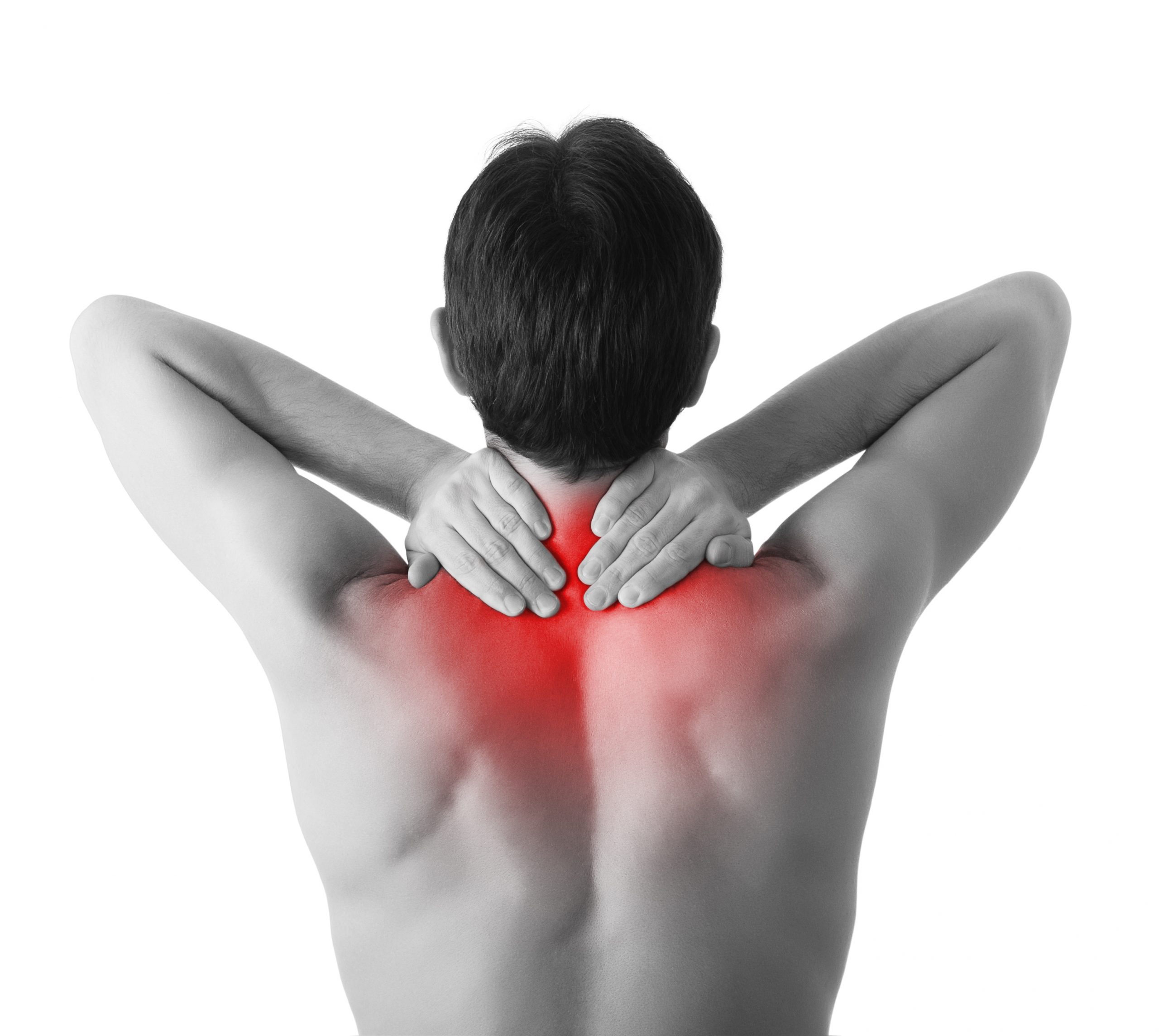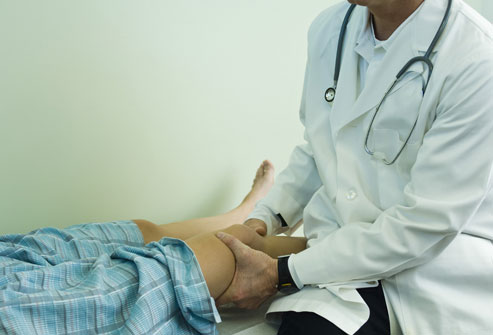Cervical radiculopathy affects many adults across the country, especially here in New Jersey. The word “radiculopathy” means a nerve is being pinched or irritated. “Cervical” refers to the neck. Put them together, and it means there’s a compressed nerve in your neck. Usually, they cause pain, tingling, or weakness that radiates down your arm.
More and more people are developing cervical radiculopathy in NJ. Why? A lot of people here work at a desk for hours on end, have physical jobs that involve lifting, and experience long commutes. Adding aging and poor posture creates the perfect storm for developing neck problems.
This blog covers what causes cervical radiculopathy in New Jersey and how you can help prevent it. If you’re experiencing symptoms of a pinched nerve in your neck in NJ, knowing what causes it makes a huge difference in managing it.
What Is Cervical Radiculopathy?
Cervical radiculopathy, also known as a pinched nerve in the neck, can be caused by worn-down discs, bone spurs, or a slipped disc that presses on a nerve. This prevents the nerve from doing its job, leading to effects like pain, tingling, or weakness in your neck, shoulder, arm, or fingers.
People experience these symptoms in different ways. Some people describe it as sharp or shooting pain. Others say their arm feels weak or their fingers go numb, like they’ve fallen asleep. It might come on suddenly, especially after lifting something heavy or twisting your neck.
But it often builds slowly, from habits that put repeated strain on the spine over time. Think of things like looking down at your phone, hunching over a laptop, or holding tension in your shoulders day after day. These are probably things you do every day in a place like New Jersey.
The Leading Causes of Cervical Radiculopathy in Adults
Cervical radiculopathy in adults doesn’t appear out of the blue. It usually results from a mix of physical stress, aging, and lifestyle habits. These are the most common causes:
Aging and Wear and Tear
The discs between the bones in our necks lose their shape and flexibility as we get older. They shrink and dry out, which narrows the space around your nerves. That extra pressure can lead to age-related neck problems in NJ, especially if you’re over 40.
Weak Neck Muscles
When the muscles in your neck and upper back are weak, they can’t support your spine. It’s easier for nerves to get pinched without that support. If your head often leans forward, like when looking at a phone or screen, those muscles can become overworked and strained. Habits like this lead to neck muscle strain and nerve compression.
Repetitive Strain from Work or Daily Tasks
Lifting heavy boxes, driving for long hours, or doing the same motion all day (like in warehouse or construction jobs) can stress your neck over time. Even something simple like cradling a phone between your shoulder and ear adds up, contributing to work-related neck pain in NJ.
Disc Herniation
Sometimes, a disc can slip out of place or tear, pressing on a nearby nerve. This can cause sudden, intense pain, especially in otherwise healthy younger or middle-aged adults.
Smoking and Other Habits
Smoking lowers blood flow to your spine and speeds up disc damage. Sitting too long, poor posture, and not staying active also weaken your neck muscles. These lifestyle factors raise your risk of developing cervical radiculopathy.
Who’s Most at Risk in NJ?
Certain lifestyles and job types make a pinched nerve in the neck more likely in NJ. Here’s who’s at higher risk, especially in New Jersey:
- Adults ages 40–60
Age-related spine changes become more common and often go unnoticed until symptoms start. At these ages, it’s often progressed enough for symptoms of cervical radiculopathy due to aging in NJ to start. - Construction workers, drivers, and warehouse employees
These jobs involve lifting, vibration, or repetitive neck movements that increase wear and tear. This brings a higher risk of work-related cervical radiculopathy in NJ. - Office workers and remote employees
Sitting for hours at a computer or on Zoom calls without breaks can strain the neck, increasing the likelihood of neck pain from desk work in NJ. - People with a history of spine or neck problems
If you’ve had past injuries or back pain, you may already have some nerve compression, making you more prone to recurrent cervical radiculopathy. - Anyone with poor posture or limited movement
Slouching while scrolling on your phone, sleeping with a bad pillow, or skipping exercise can all contribute to the problem, increasing the risk of developing cervical radiculopathy due to poor posture.
How to Prevent Cervical Radiculopathy
You don’t need to overhaul your entire lifestyle to protect your neck. Simple, smart changes can reduce your risk of developing a pinched nerve in your neck and keep your spine in good shape. Here are some ways to prevent cervical radiculopathy:
- Strengthen Your Neck and Posture Muscles: Try chin tucks while sitting at your desk, wall push-ups to strengthen your shoulders, or light resistance band exercises. Even 10 minutes a day can strengthen the muscles around your neck and help prevent neck pain.
- Move Often, Even at Work: Set a timer to stand up and stretch every 30–60 minutes. Roll your shoulders back, tilt your head side to side, or take a quick lap around your office or home. These small breaks reduce pressure and keep your spine mobile. These things help avoid nerve compression in the neck.
- Fix Your Desk Setup: Raise your monitor to eye level. Use a chair with good back support. Keep your elbows at a 90-degree angle while typing. If you work from home, this matters even more. An ergonomic setup takes a lot of strain off your neck.
- Safe Lifiting: Bend your knees and keep the item close to your body when lifting. Don’t twist or jerk your neck, especially when carrying heavy loads. Proper lifting techniques can prevent sudden neck injuries and nerve issues.
- Stay Active and Quit Smoking: Walking, yoga, and swimming all help keep your spine healthy. If you smoke, quitting improves blood flow to your spine and helps your discs heal better. Maintaining an active lifestyle and avoiding smoking improves your spinal health and reduces the risk of cervical radiculopathy.
Even small adjustments can add up over time. The goal is to reduce strain on your neck and strengthen the muscles that support it to prevent a pinched nerve in the neck in NJ.
What to Do If You Have Symptoms
If you’re feeling pain, tingling, or numbness in your neck, shoulder, or arm, don’t wait. These could be signs of cervical radiculopathy. The sooner you take action, the easier it is to manage neck pain and related symptoms. Here’s what to do if you suspect you have a pinched nerve in your neck:
- Talk to your doctor
They’ll ask about your symptoms, check your neck movement, and may recommend an MRI or other imaging to confirm what’s happening. Seeking professional medical advice is the first step in addressing potential cervical radiculopathy. - Try conservative treatment first
Many people improve with physical therapy, posture training, or simple home exercises. Heat, ice, and anti-inflammatory medicine can also help in the short term to manage neck pain and inflammation. - Be patient, but don’t ignore it
If things don’t improve after a few weeks, your doctor may suggest steroid injections or other non-surgical options. Surgery is rare and only needed for serious, persistent cervical radiculopathy cases. - Watch for red flags
Some symptoms may be a sign of a more serious problem. Call a doctor right away if you notice:- Sudden or severe weakness in your arm or hand
- Trouble walking or balancing
- Loss of bladder or bowel control
- Numbness that spreads or worsens quickly
Most people recover without surgery. The key is recognizing symptoms early and being consistent with treatment and prevention of cervical radiculopathy.
The Impact on Quality of Life
Living with cervical radiculopathy can affect your quality of life. The persistent pain, tingling, and weakness can interfere with everyday activities. Sleep can be disrupted by discomfort, leading to fatigue and reduced energy levels.
For those in physically demanding jobs common in NJ like construction or warehousing, the condition can impact their ability to work. Even for those with desk jobs, constant neck and arm pain can make focusing difficult and reduce productivity. Understanding these potential impacts shows how important it is to take preventative measures and seek treatment.
Staying Ahead of Neck Pain in NJ
Cervical radiculopathy may sound complicated, but the solution often starts with simple changes. By understanding what causes a pinched nerve in your neck in NJ and taking daily steps to protect your neck, you can stay ahead of the pain.
In a busy state like New Jersey, it’s easy to fall into habits that stress the spine. Whether you’re a construction worker in Paterson, commuting on the Garden State Parkway, or working from a home office in Montclair, your neck takes a beating without the right support.
But the good news is, with a few changes, like stretching between meetings, using proper lifting form, or adjusting your desk setup, you can reduce long-term damage. If you’re already feeling symptoms, don’t wait for it to get worse. Early action leads to better recovery. If you’re dealing with signs of cervical radiculopathy in NJ, knowing what causes it and how to avoid it makes a huge difference.
Take care of your neck today, so it can take care of you tomorrow.
Resources:
Liang, Long PhDa; Cui, Xin MSa; Feng, Minshan MDa,b; Zhou, Shuaiqi MSa,c; Yin, Xunlu PhDa,b; He, Feng PhDa; Sun, Kai PhDa; Yin, He MDa,b; Xie, Rong MSa,c; Zhang, Dian MSa,c; Zhou, You MSa,c; Wu, Yue MSa,c; Tan, Guihong MSa; Wang, Zhengdong MSa; Wang, Xingyu MSd; Zhang, Jianhua MDd; Zhu, Liguo MDa,b,∗; Yu, Jie MDa,b,∗; Wei, Xu PhDa,b,∗. The effectiveness of exercise on cervical radiculopathy: A protocol for systematic review and meta-analysis. Medicine 98(35):p e16975, August 2019. | DOI: 10.1097/MD.0000000000016975
Pan, Shixin PhDa; Liu, Chong PhDb; Chen, Jiarui MDa; Chen, Liyi PhDa; Liang, Tuo PhDa; Ye, Yongqing MDc; Zhan, Xinli PhDd,*. Age and flexors as risk factors for cervical radiculopathy: A new machine learning method. Medicine 103(4):p e36939, January 26, 2024. | DOI: 10.1097/MD.0000000000036939
https://now.aapmr.org/cervical-radiculopathy/




